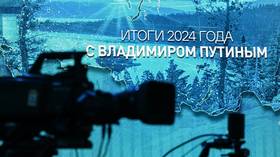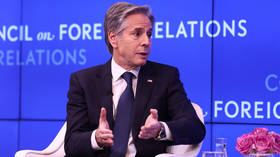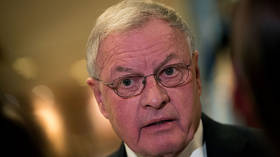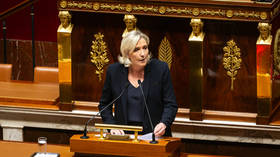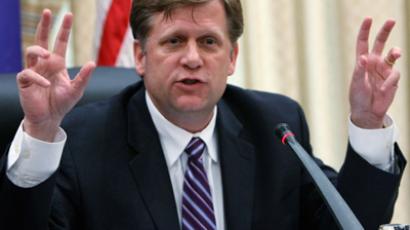Putin’s Technological Industrialization
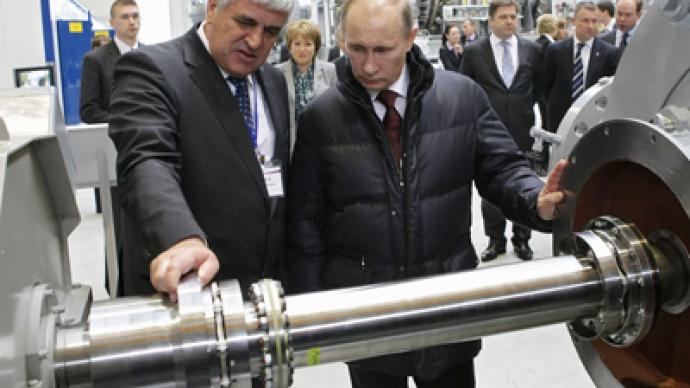
Vladimir Putin has outlined his economic strategy in a recently published article which essentially focuses on technological industrialization. Political scientist Igor Panarin believes the policy objective fits into Putin’s overall New Ideology.
In the article below, professor Igor Panarin explains his view.Vladimir Putin’s third article outlining his electoral agenda appeared in Vedomosti daily this week and focused entirely on economics. The article was timely, coming as it did against the background of continuing gloom in the West, which faces the social implications of a global economic downturn. This was vividly illustrated when Belgian trade unions greeted an EU summit in Brussels by holding a general strike to protest at the bloc’s austerity policies, and Occupy protesters burnt an American flag in Oakland, California. Unlike Mr. Putin’s previous two pieces, his economic agenda has not drawn widespread criticism from either the opposition parties in parliament or the non-system or “street” opposition represented by the Bolotnaya Square protest in Moscow last December. Putin’s economic policy statement starts with a scathing evaluation of Russia’s economic performance in its first post-Soviet decade in the 1990s. In what I see as Putin’s most stigmatizing assessment of Russia’s early democratic period published to date, the prime minister essentially argues that the national economy was de-industrialized in the 1990s, and denounces the initial privatization process as unfair, citing ethics and moral standards. Although Russia has managed to regain its economic power and reinstate itself as the world’s sixth largest economy in the first decade of the 21st Century, this was predominantly thanks to its soaring commodity exports such as oil and gas, metals, timber, etc. According to Putin, now is the time to devise an efficient mechanism for upgrading the national economy by launching a New Industrialization plan based on sophisticated technologies. Mr. Putin’s strategic economic objective, therefore, is administering an innovative technological breakthrough that would propel Russia into the so-called Sixth Technological Cycle alongside the world’s most advanced economies. Putin’s economic policy outline proposes raising the necessary funds to finance a technological industrialization effort by developing Russia’s domestic market, making it attractive for direct investment. I regard this as a highly expedient idea, considering that the past year was marked with Russia’s significant progress with regard to establishing a Customs Union and a free trade area with some of its CIS partners, and the overall trend for fostering a Common Economic Space in line with the fundamental logic of Eurasian integration. “Russia has been consistent and committed to establishing a common market with its neighboring states – a market where goods and services would travel unimpeded by any barriers or incoherent regulation. A large market formed within a Common Economic Space would make each of our respective economies more competitive,” Putin argues. The New Technological Industrialization objective requires a “diffusion of innovations” to be enabled with regard to the Russian economy. The presidential candidate proposes employing the late Soviet Union’s formidable scientific legacy to that end, primarily its fundamental science and the remaining research and development and pilot-production facilities. That is evidently a difficult task, however, as Soviet expertise is largely inapplicable for purposes of a groundbreaking technological upgrade. I happen to have authored a thesis on the process of introducing innovations in national economies. The USSR’s major economic weakness was exactly the fact that it tended to embrace and apply far fewer innovations than Western economies. The school of scientific research focusing on innovation emerged in Russia some 15 years later compared to advanced market economies. In the late 1980s, Soviet analysts came to the same conclusion as their Western counterparts, namely that innovation was not solely driven by economic incentives, but also by a combination of social and psychological factors including personal motivation, etc. What makes Mr. Putin’s strategic economic objective even more challenging is the fact that Russia’s modern-day economy is even less disposed toward innovation than the USSR used to be. The disparity in innovation between Russia and the world’s most advanced economic powers has not declined, but rather increased in the past two decades. The prime minister reasonably points to the inertia displayed by Russia’s big industries in his article, citing their reluctance to introduce innovation in their line of business. Russia’s big businesses keep using the outdated Soviet industrial facilities until they crumble, rather than upgrade production with a view to prospective development. The nation also lacks well-managed and efficiently marketed innovative research that would produce Russian-made intellectual property. Vladimir Putin believes it is up to Russia’s universities and scientific think-tanks to act as the driving force for innovative development. To that end, the prime minister reasons, government-provided as well as private funding for these institutions should be fundamentally increased. While this notion is hardly debatable, there remains a more challenging question: Who shall take care of motivation? Whose responsibility shall it be to channel the creative energy and involvement of the Russian middle-class, currently fixated on political protest, toward innovative development? Regrettably, Mr. Putin leaves this question unaddressed in his present strategy outline. He does introduce some benchmarks for upgrading the national economy, however, such as increasing Russia’s hi-tech exports twofold by 2020, and expanding the share of cutting-edge industries in Russia’s GDP 1.5 times within the same timeframe. This ambitious task requires a crucial adjustment of the government’s media policies. Russia’s mainstream airtime and popular media images remain dominated by entertainment, celebrities and pop culture rather than innovative industrialists and research scientists. Unless the trend changes in public perception, the motivation for Russia’s industrial and technical upgrade will remain elusive.It is crucial, therefore, that research and engineering jobs should be comprehensively promoted and popularized in Russia. This is what the Kremlin’s political consultants should be primarily tasked with. Making Russia’s system of education more competitive is another task that deserves to be promoted as a national policy objective. Finally, a new, innovation-friendly corporate and industrial environment professed by Mr. Putin requires a profound adjustment of the government’s media policies. A New Technological Industrialization is a golden opportunity for Russia. It would provide a fighting chance for Russia’s innovative scientists and industrialists, as well as for the patriotically-minded business community that was not involved in the unfair privatization of state industries in the 1990s. Moreover, the Russian economy stands far greater chances of success this time compared to the early 2000s. As the world finds itself fundamentally reshaped and reclassified by the oncoming advent of the Sixth Technological Cycle, an innovative Technological Industrialization is Russia’s only sure bet for assuming its due competitive position in the world of tomorrow.
Prof. Igor Panarin, Doctor of Political Sciences, special to RT
The statements, views and opinions expressed in this article are those of the author and do not necessarily represent those of RT.


